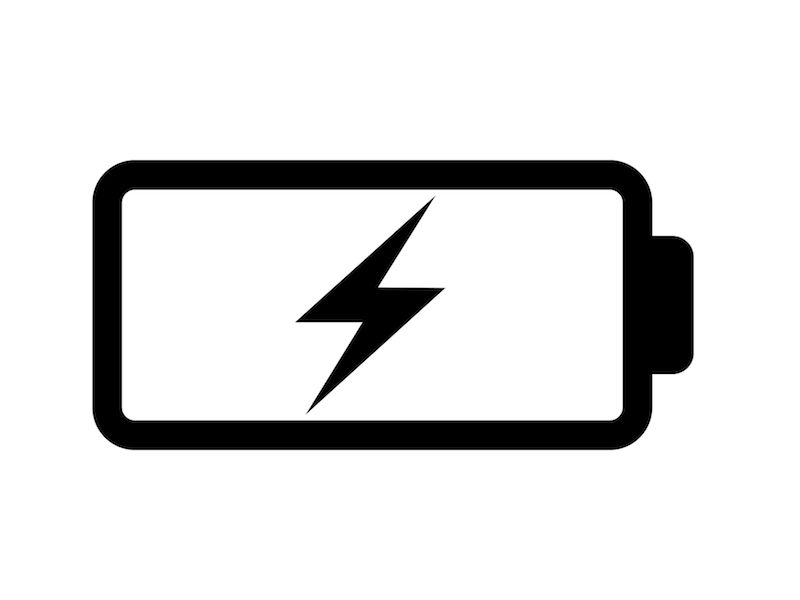
Stressing about losing battery power is something you shouldn’t have to do with rechargeable hearing aids, but when you depend on this technology, it may make you a little anxious. Do rechargeable hearing aids work as well as advertised or do they even work at all?
The anxiety is understandable and so are the question you might have. A hearing aid is often a necessary part of one’s everyday life, as necessary for a quick visit to the grocery store as they are for the enjoyment of a television show or movie. It’s important that a piece of technology functions correctly and dependably, especially when it affects so many facets of life.
What Kind of Battery do I Have?
By default, most contemporary hearing aids have rechargeable batteries, so it’s likely if you bought your hearing aids recently, it has one of two types of batteries. Silver-zinc batteries, which can normally be distinguished by a battery door on the device, are rechargeable, but the batteries may have to be changed every now and then. A Lithium-ion battery, however, will last throughout the life-cycle of the hearing device and, as such, those devices will not have that telltale battery door.
Rechargeable Hearing Aids Need Special Care
For the most part, rechargeable hearing aids do work, and they work well. The reliability of these devices has enhanced significantly in the last few years, as battery technologies have advanced. As with any other electronic device, however, there are some easy maintenance steps that users can follow to improve the dependability of their rechargeable hearing aids.
- Keep Your Hearing Aids Clean and Dry: No matter how often you use or do not use your hearing aids, they have abundant opportunity to accumulate dust, debris, and moisture. Any combination of these three things can diminish the efficiency of your battery and can interfere with charging as much as it needs. When connecting your hearing aid to your charging station, as with any other time, it’s essential to keep your device clean.
- Be Careful of Wires: Most hearing aids will have a wire element of some kind, either on the charging station or on the hearing aids themselves. Being aware of these wires is important for hearing aid users; the connection that enables the device to charge can be damaged if you pull on or hold it by the wires.
- Keep Your Hearing Aids on The Charging Station: If you consistently store your rechargeable hearing aids on their recharging station you can extend the life of your battery. The long term battery life is not reduced by charging a battery that is not completely drained.Actually, you can actually improve the battery life by making certain your hearing aids are charging when not in use. For lots of people, putting their charging station next to their bed is a simple reminder to charge the devices when it’s not being used.
How to Change a Rechargeable Battery
If you have lithium-ion batteries, they will probably last as long as your device does. So changing those batteries shouldn’t be something you ever have to worry about. Your hearing aids can then be simply charged as long as necessary.
However, you will want to occasionally replace the batteries if you have a hearing aid that uses silver-zinc batteries. The longevity of your battery can be increased by changing them in the correct way. As a result, most people who use these hearing aids are counseled to:
- Don’t get rid of any packaging or plastic tabs until you’re ready to use batteries.
- Be sure you wash your hands before replacing your hearing aid batteries.
- Confirm that your battery compartment is clean and free of moisture.
- Store batteries in a room temperature place that is also certain to be dry.
- Let the batteries sit out at room temperature for at least five minutes before removing any tabs that may be attached.
Non-Use For Long Periods
Leaving your hearing aids on the charger for extended periods of time is no longer the best way to store your hearing aids. Simply disconnect your hearing aid and put it in a dry cool spot if, for example, you know you won’t be wearing them for a few weeks or a month.
Think about leaving the battery door open so you can prevent moisture from corroding the batteries if you have silver-zinc batteries.
Rechargeable for Everyday Use
For most individuals, and for day to day use, charging your hearing aids once a day should be adequate for all of your requirements. A lithium-ion battery, for example, will usually require only 3-4 hours to charge enough battery power for a 24 hour period.
Do rechargeable hearing aids work? They don’t just work, they are becoming more common all the time. Contact your local hearing aid retailer to see all the different models
